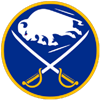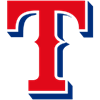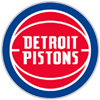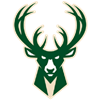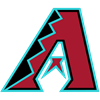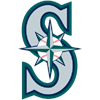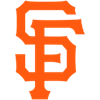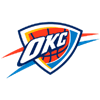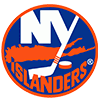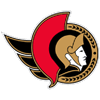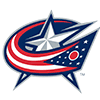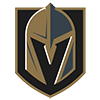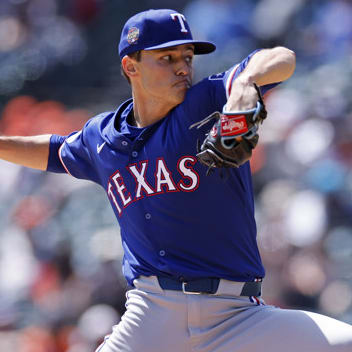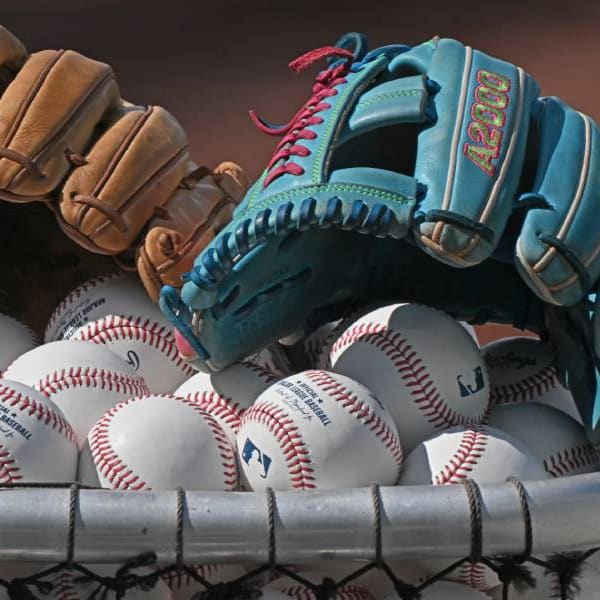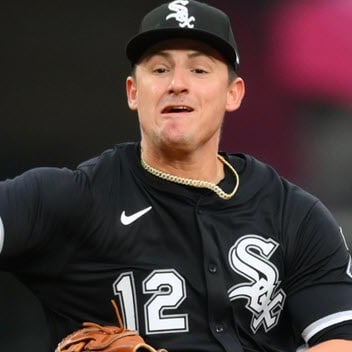On this week's Prospect Podcast, Chris Clegg and I discussed over a dozen prospects to target for 2025 production, and we grouped them by position (SP, RP, C, MI, CI, OF):
Here's essentially the article version, in which I highlight my favorite prospects to target for 2025 production while factoring in presumed cost. I'm mostly thinking about the NFBC Draft Champions format with these prospects, as those draft-and-hold leagues will start drafting before the end of the postseason, but hopefully you find it useful across all formats.
Dalton Rushing, C/OF, Dodgers
We could still see Rushing get the call this year, as he's played 26 of 33 games at Triple-A in left field while getting just three starts at catcher. Regardless of how the rest of this year plays out, I envision Rushing winning an Opening Day roster spot next year and getting about 30-40 percent of the starts behind the dish with a few starts in left field per week. Rushing improved his Hard% from 25.1 percent in 2023 to 35.6 percent this year while improving his K% from 24.4 percent to 20.2 percent and his Contact% from 67.9 percent to 75.8 percent while facing tougher pitching. He probably won't steal many bases in the majors, but he could be a plus contributor in AVG/OBP who hits around 20 homers per season. For NFBC Draft Champions formats, I'm viewing Rushing as a premium third catcher or really cheap second catcher.
Edgar Quero, C, White Sox
It's possible
On this week's Prospect Podcast, Chris Clegg and I discussed over a dozen prospects to target for 2025 production, and we grouped them by position (SP, RP, C, MI, CI, OF):
Here's essentially the article version, in which I highlight my favorite prospects to target for 2025 production while factoring in presumed cost. I'm mostly thinking about the NFBC Draft Champions format with these prospects, as those draft-and-hold leagues will start drafting before the end of the postseason, but hopefully you find it useful across all formats.
Dalton Rushing, C/OF, Dodgers
We could still see Rushing get the call this year, as he's played 26 of 33 games at Triple-A in left field while getting just three starts at catcher. Regardless of how the rest of this year plays out, I envision Rushing winning an Opening Day roster spot next year and getting about 30-40 percent of the starts behind the dish with a few starts in left field per week. Rushing improved his Hard% from 25.1 percent in 2023 to 35.6 percent this year while improving his K% from 24.4 percent to 20.2 percent and his Contact% from 67.9 percent to 75.8 percent while facing tougher pitching. He probably won't steal many bases in the majors, but he could be a plus contributor in AVG/OBP who hits around 20 homers per season. For NFBC Draft Champions formats, I'm viewing Rushing as a premium third catcher or really cheap second catcher.
Edgar Quero, C, White Sox
It's possible Quero's mid-August back injury that prevented him from making his big-league debut will help suppress his early NFBC DC cost, as fewer redraft players will be familiar with him. Like with Rushing, I'm expecting Quero to make the Opening Day roster, as both players should be on all the necessary preseason top 100s to qualify for a Prospect Promotion Incentive Pick. He was a little lucky on balls in play at Triple-A while putting up a .313/.408/.506 slash line, but Quero could have easily fallen flat in his Triple-A debut after logging 72 games at Double-A. Aram Leighton, who came on the Aug. 21 Prospect Podcast, noticed mechanical adjustments Quero made early in the season that allowed his power output to take off. From May 30 on, Quero slashed .344/.424/.550 with nine home runs and a 14.7 percent strikeout rate in 53 games as a 21-year-old catcher in the two highest levels of the minors.
Coby Mayo, 3B, Orioles
Mayo is a blue-chip prospect coming off a tiny, yet poor MLB sample. This is a chance to capitalize, both in redraft and dynasty. His MLB strikeout rate will be sitting there all offseason to keep the price in check, but there's a real chance Mayo pulls a 2024 Colton Cowser and shows up to spring training ready to win an everyday job in camp. Mayo will be third-base eligible in fantasy, but I expect him to add first base eligibility in season. I'd consider pairing Mayo and Ramon Urias in Draft Champions, as Urias was sneakily pretty good this year, and I'd be surprised if neither player was a regular for Baltimore at the beginning of 2025.
Matt Shaw, 3B, Cubs
Shaw put the finishing touches on his minor-league development this year (148 wRC+ at Double-A, 143 wRC+ at Triple-A), so the question is just where he fits on the Cubs depth chart. He should be very affordable all winter for as long as he appears blocked, but if the Cubs are able to deal Nico Hoerner, for instance, Shaw would immediately project to be the Opening Day second baseman. Shaw will be eligible at third base this offseason, as that's where he played the most in 2024, but he's a more natural second baseman. He's got 25/25 upside but may be more of a 15/15 contributor in his first successful MLB season.
Colby Thomas, OF, Athletics
The Athletics are running out of spots that aren't nailed down, with Lawrence Butler and JJ Bleday seemingly emerging this year as lineup staples for the foreseeable future. Thomas is my pick to join them as the franchise's long-term outfield trio, and he could be ready in the first half of next season. His game is built around power and speed, as he may not hit for a high average long term, and I certainly don't expect him to hit better than .230 or .240 as a rookie. Like with Butler and Bleday, Thomas has the tools to see time in all three outfield spots, and he could produce at a 20/10 clip next year. There's hit tool risk (18.0 K% at Double-A, 30.7 K% at Triple-A) that could prevent Thomas from holding down a job in 2025, so the key to this pick is the redraft price remaining low.
Jacob Melton, OF, Astros
With Jason Heyward and Mauricio Dubon currently playing prominent roles, it seems fair to say that only Kyle Tucker is a clear outfield starter for this team in 2025. Enter Melton, who would immediately challenge Jake Meyers as the team's best defensive outfielder. Melton has the arm for right and the speed/reads for center field. He also has more power than he's shown thus far at Triple-A. While Thomas is a realistic 20-homer/10-steal threat, Melton is a realistic 10-homer/20-steal threat with a chance to take a bigger step forward in the power department. Neither outfielder will help in average as rookies.
Kumar Rocker, RHP, Rangers
Rocker's offseason appeal will greatly hinge on him holding up over these next two MLB starts, but if he heads into the offseason healthy and throwing the way he has over the past month-plus, I'm going to be interested depending on the price. He's currently at 40.2 innings this year, and while he'll surely have his innings capped in the 100-130 range next year, that's enough innings to pay off a top-300 pick in DCs. In the scenario I outlined, where he finishes the year healthy, I think the price will only go up as the drafting public gets fully up to speed on how good Rocker was to close the year.
Bubba Chandler, RHP, Pirates
If I had to guess right now, Chandler will be the prospect I have the most exposure to in my Draft Champions leagues, which was true of his teammate Jared Jones this year. I'm even more excited about Chandler right now than I was about Jones this time last year. Chandler, who was a two-sport athlete in high school and a two-way prospect initially in pro ball, has better size (6-2, 200 pounds) than Jones and a similar power arsenal. I think Chandler is a clear top-15 dynasty prospect, and arguably the top pitching prospect in the game. That's not a consensus opinion yet, but I think it will be when all the big real-life offseason lists get released in January, so the fall and early winter seems like a great time to load up on Chandler.
Zach Maxwell, RHP, Reds
Maxwell, who throws really hard and, at 6-foot-6, 275 pounds, cuts an intimidating presence on the mound, could emerge as Cincinnati's closer of the future at some point next season. The burly righty has 82 strikeouts and five saves in 51.2 innings across Double-A and Triple-A. Alexis Diaz hasn't lost the role this year, but an 11.2 K-BB% is pretty awful for a closer, so it's easy to envision him losing the job in the first half next year. Maxwell has the same weakness as Diaz (too many walks), but Maxwell is four years younger than Diaz and probably has a better chance of fixing that flaw at this stage, given that Diaz has had a walk rate north of 12 percent all three seasons in the majors.
Jaden Hill, RHP, Rockies
I can't say I've studied the Rockies' late-inning situation carefully this season, but guys like Tyler Kinley and Victor Vodnik can't match Hill's pure stuff (nasty sinker/changeup combo) or pedigree (second-round pick in 2021). Hill is elite at generating weak contact and his strikeout rate should steadily pick up as he gets more reps (2024 was his first year in the bullpen). At the very least, Hill should spend all of next year in the majors, and I expect the price to be very affordable given his lack of saves this season and home park.








